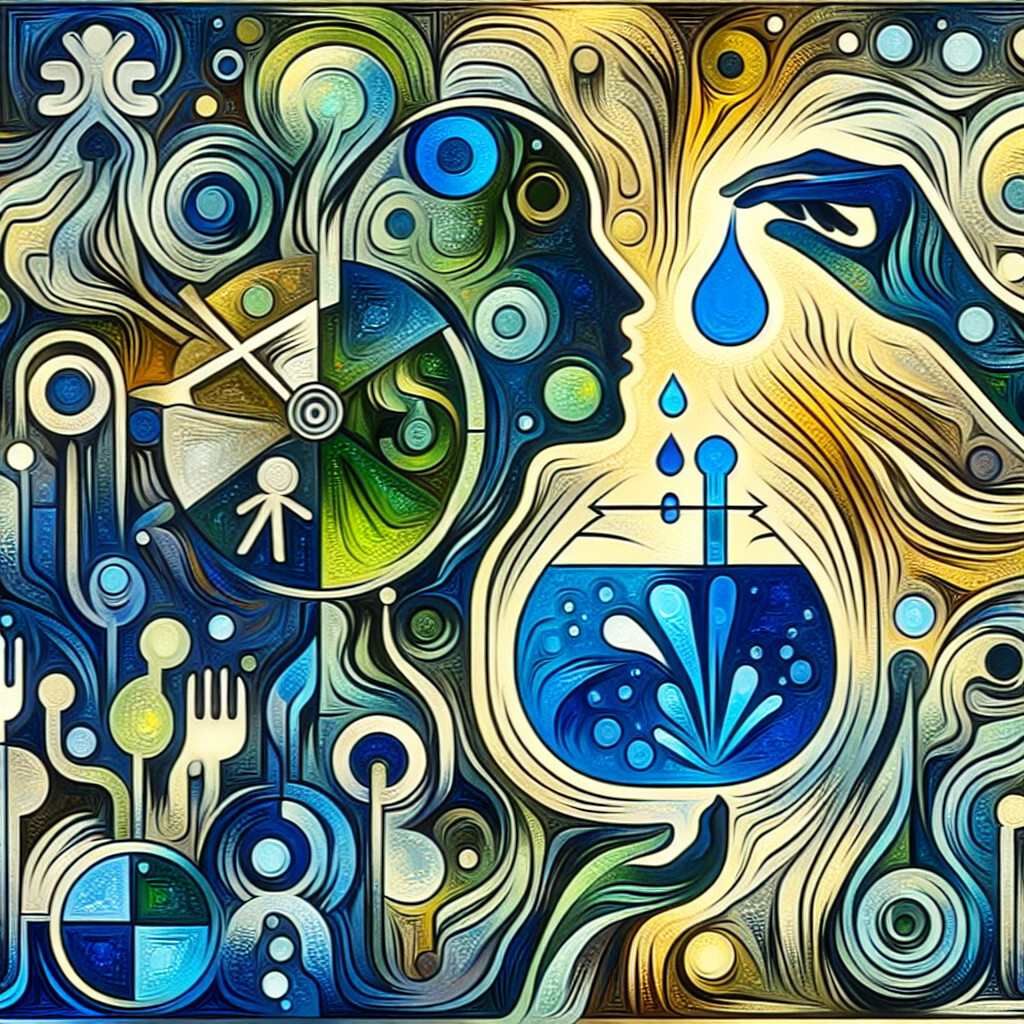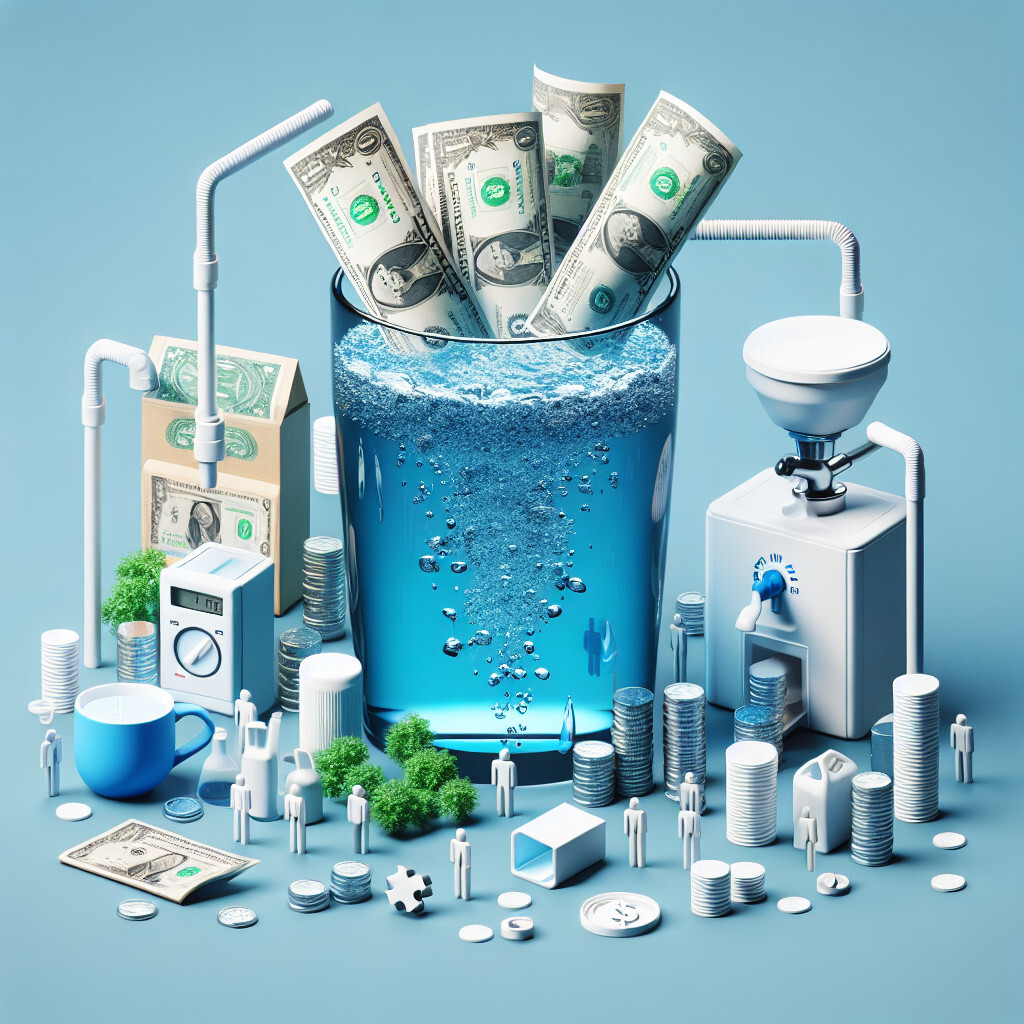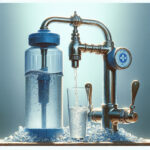-
Table of Contents
“Affordable Purity, Priceless Health: Filtered Drinking Water”
Introduction

Filtered drinking water price refers to the cost associated with obtaining drinking water that has undergone a purification process to remove contaminants, bacteria, and other harmful substances. This price can vary significantly depending on the filtration method used, the brand, the region, and whether it is purchased in bulk or single-use bottles. It also includes the cost of home filtration systems and their maintenance. The aim of providing filtered drinking water is to ensure safe and clean water for consumption, but the associated costs can be a barrier for some individuals and communities.
Understanding the Cost of Filtered Drinking Water Systems
The cost of filtered drinking water systems is a topic of interest for many individuals and families who are concerned about the quality of their drinking water. The price of these systems can vary greatly, depending on a number of factors. Understanding these factors can help consumers make informed decisions about the best system for their needs and budget.
One of the primary factors that influence the price of a filtered drinking water system is the type of filtration technology it uses. There are several different types of filtration technologies available, each with its own advantages and disadvantages. For example, activated carbon filters, which are commonly used in pitcher-style filters and faucet attachments, are relatively inexpensive. However, they may not remove all types of contaminants. On the other hand, reverse osmosis systems, which use a semi-permeable membrane to remove contaminants, are more effective at removing a wider range of contaminants, but they are also more expensive.
The size and capacity of the system also play a role in its cost. Smaller, single-use filters are generally less expensive than larger, whole-house systems. However, the cost per gallon of water filtered is often lower for larger systems, making them a more cost-effective choice in the long run for households that consume a lot of water.
Installation costs are another factor to consider. Some systems, like faucet attachments and pitcher filters, are easy to install and require no professional assistance. Others, like under-sink or whole-house systems, may require professional installation, which can add to the overall cost of the system.
The lifespan and replacement cost of the filter is another important consideration. Some filters need to be replaced frequently, which can add to the ongoing cost of the system. Others have a longer lifespan, which can make them more cost-effective over time. It’s also worth noting that some systems have proprietary filters that can only be purchased from the manufacturer, while others can use generic filters, which can be less expensive.
Finally, the quality and source of the water being filtered can also impact the cost of a filtered drinking water system. If the water is heavily contaminated, a more advanced system may be required to effectively remove all contaminants. Similarly, if the water source is unreliable or changes frequently, a system with a broader range of filtration capabilities may be necessary.
In conclusion, the cost of filtered drinking water systems can vary greatly, depending on the type of filtration technology, the size and capacity of the system, installation costs, the lifespan and replacement cost of the filter, and the quality and source of the water being filtered. By understanding these factors, consumers can make informed decisions about the best system for their needs and budget. While the initial cost of a filtered drinking water system can be high, the benefits of clean, safe drinking water can make it a worthwhile investment.
Comparing Prices: Bottled Water vs Filtered Drinking Water
The price of drinking water is a significant consideration for many households, particularly when comparing the cost of bottled water to that of filtered drinking water. This comparison is not only important from a financial perspective but also from an environmental and health standpoint.
Bottled water is a popular choice for many, primarily due to its convenience and perceived purity. However, the cost of bottled water can be significantly higher than that of filtered drinking water. On average, a single bottle of water costs around $1.50, which may seem relatively inexpensive. However, when you consider the average person should consume around two liters of water per day, this cost can quickly add up. Over a year, the cost of bottled water for one person can amount to over $1,000, a substantial sum for a basic necessity.
In contrast, filtered drinking water offers a more cost-effective solution. The initial investment in a water filter can range from $20 for a simple pitcher filter to several hundred dollars for a high-end under-sink or whole-house system. However, once this initial cost is covered, the ongoing expense is limited to the replacement of the filter cartridge. Depending on the type of filter used, this can cost between $30 and $100 per year. Therefore, even with the highest-end filters, the annual cost of filtered drinking water is significantly less than that of bottled water.
Moreover, it’s important to consider the environmental cost of bottled water. The production and disposal of plastic bottles contribute significantly to environmental pollution. In contrast, water filters produce less waste, as only the cartridges need to be replaced periodically.
From a health perspective, both bottled and filtered water are generally safe to drink. However, some studies suggest that plastic bottles can leach chemicals into the water, particularly if they are exposed to heat or stored for a long time. On the other hand, high-quality water filters can remove not only the taste and odor of chlorine often present in tap water but also a wide range of contaminants, including lead, mercury, and certain types of bacteria.
In conclusion, while bottled water may offer convenience, the cost, both financial and environmental, is significantly higher than that of filtered drinking water. A good quality water filter can provide safe, clean drinking water at a fraction of the cost of bottled water, making it a wise investment for both your wallet and the environment. Therefore, when comparing the price of bottled water to filtered drinking water, it’s clear that filtered water is the more economical and environmentally friendly option.
However, it’s important to note that the quality of tap water can vary greatly depending on the location. Therefore, before investing in a water filter, it’s advisable to have your tap water tested to determine what contaminants, if any, are present. This will allow you to choose a filter that is specifically designed to remove those contaminants, ensuring you have access to safe, clean drinking water at the most affordable price.
How Much Does a Home Water Filtration System Really Cost?
The price of filtered drinking water is a topic of interest for many homeowners, especially those who are health-conscious and environmentally aware. The cost of a home water filtration system can vary greatly, depending on several factors. These include the type of system, the quality of the water being filtered, and the specific needs of the household.
To begin with, the type of water filtration system plays a significant role in determining the cost. There are several types of systems available in the market, each with its own set of features and benefits. For instance, a simple pitcher filter, which is a portable option that can be kept in the refrigerator, can cost as little as $20. On the other hand, a reverse osmosis system, which is a more advanced option that removes a wide range of contaminants, can cost anywhere from $150 to $500.
Moreover, whole-house systems, which filter all the water entering the house, can cost between $500 and $3000. These systems are more expensive because they are designed to handle a larger volume of water and often have more sophisticated filtering capabilities.
The quality of the water being filtered also affects the cost of a home water filtration system. If the water in your area is heavily contaminated, you may need a more advanced system to effectively remove the contaminants. This could increase the cost significantly. For example, if your water has high levels of lead, you may need a system with a special lead-removing filter, which can add to the overall cost.
In addition, the specific needs of your household can influence the cost. If you have a large family and consume a lot of water, you may need a system with a higher capacity, which could be more expensive. Similarly, if you have specific health concerns, such as a sensitivity to certain chemicals, you may need a system that can remove these specific contaminants, which could also increase the cost.
It’s also important to consider the ongoing costs of maintaining a home water filtration system. These can include the cost of replacing filters, which can range from $20 to $100 per year, depending on the type of system and the quality of the water. Some systems also require professional installation, which can add to the initial cost.
In conclusion, the cost of a home water filtration system can vary greatly, depending on several factors. While the initial cost can be a significant investment, it’s important to consider the long-term benefits. A good water filtration system can provide you with clean, safe drinking water, which can improve your health and well-being. It can also save you money in the long run, as you won’t need to buy bottled water. Therefore, when considering the price of filtered drinking water, it’s important to look beyond the initial cost and consider the overall value that a home water filtration system can provide.
The Impact of Filtered Drinking Water Price on Household Budgets
The price of filtered drinking water has a significant impact on household budgets, particularly in regions where tap water is not safe for consumption. As the demand for clean, safe drinking water increases, so does the cost, making it a considerable expense for many families. This article aims to explore the financial implications of filtered drinking water on household budgets.
The cost of filtered drinking water varies widely depending on the method of filtration, the quality of the source water, and the region. For instance, bottled filtered water is typically more expensive than home filtration systems. While the upfront cost of a home filtration system can be high, it often proves to be more cost-effective in the long run. However, the maintenance and replacement of filters also add to the overall cost.
In areas where tap water is unsafe or unreliable, families have no choice but to rely on filtered drinking water. This necessity can take up a significant portion of a household’s income, particularly in low-income households. According to a study by the Pacific Institute, some low-income households spend up to 10% of their income on water. This high expenditure on a basic necessity like water can lead to financial strain and limit the household’s ability to spend on other essential items like food, healthcare, and education.
The high price of filtered drinking water also has broader economic implications. When a significant portion of a household’s income is spent on water, there is less disposable income available for other goods and services. This reduced spending power can have a ripple effect on the economy, leading to slower economic growth.
Moreover, the high cost of filtered drinking water can exacerbate social inequalities. Wealthier households can afford high-quality filtration systems and have access to clean, safe drinking water at a lower cost per unit. In contrast, lower-income households may have to rely on more expensive bottled water or lower-quality filtration systems. This disparity in access to affordable clean water can lead to health inequalities, as poor water quality is linked to a range of health issues, including gastrointestinal diseases and developmental problems in children.
However, it’s important to note that the price of filtered drinking water is not just a reflection of the cost of filtration technology. It also includes the cost of infrastructure, distribution, and even marketing. Therefore, strategies to reduce the price of filtered drinking water should not only focus on improving filtration technology but also on improving water infrastructure and distribution systems.
In conclusion, the price of filtered drinking water has a significant impact on household budgets, particularly in regions where tap water is not safe for consumption. It can lead to financial strain, slow economic growth, and exacerbate social inequalities. Therefore, efforts should be made to make filtered drinking water more affordable, particularly for low-income households. This could involve investing in water infrastructure, improving distribution systems, and subsidizing the cost of home filtration systems for low-income households. By doing so, we can ensure that everyone has access to clean, safe drinking water without it being a financial burden.
Q&A
1. Question: How much does a basic water filter pitcher cost?
Answer: A basic water filter pitcher typically costs between $20 and $40.
2. Question: What is the price of a high-end under-sink water filtration system?
Answer: A high-end under-sink water filtration system can cost anywhere from $200 to $500.
3. Question: How much does a replacement filter for a water filtration system cost?
Answer: Replacement filters for a water filtration system typically cost between $10 and $50, depending on the brand and model.
4. Question: What is the average cost of a whole house water filtration system?
Answer: The average cost of a whole house water filtration system can range from $500 to $3000, depending on the complexity of the system.
Conclusion
In conclusion, the price of filtered drinking water can vary significantly depending on the filtration method, brand, location, and whether it is purchased in bulk or single bottles. Despite the cost, many consumers are willing to pay for the perceived health and taste benefits of filtered water. However, it’s important to note that in many developed countries, tap water is safe and clean to drink, making filtered water an unnecessary expense for some.






